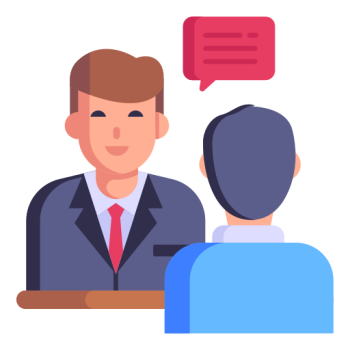Application Development
Application Development refers to the process of designing, building, and maintaining software applications. These applications can run on various platforms, including desktops, mobile devices, or web browsers.
- Requirement Analysis: Determining the needs and constraints for a new application.
- Design: Laying out the architecture and visual elements of the application.
- Programming/Coding: Writing the actual software code for the application.
- Testing: Verifying the application's functionality and checking for bugs.
- Deployment: Installing and configuring the application for use.
- Maintenance: Ongoing support, updates, and adjustments.
Application development is the art and science of creating software to solve specific problems or needs.
When augmented with AI and data analytics, applications can be made smarter, more user-centric, and adaptive, unlocking new possibilities and efficiencies for businesses. Cloudaeon bridges the gap between traditional application development and the innovative possibilities that AI offers in this domain.
How It Works
- Requirement Gathering: Understand the specific needs, goals, and constraints of the project.
- Planning: Outline the application's structure, features, and timeline.
- Design: Draft the visual interface and architectural structure of the application.
- Development: Code the application, integrating its various components and features.
- Testing: Check the application for errors, bugs, and usability concerns.
- Deployment: Release the application to the intended audience on the appropriate platforms.
- Maintenance and Updates: Address user feedback, fix emerging issues, and periodically update the application.


Key Use Cases
- Business Process Automation: Streamlining operations using custom software.
- Customer Engagement: Building applications to enhance user interaction with a brand.
- E-commerce Platforms: Custom software for online shopping.
- Data Analysis Tools: Applications to gather, process, and visualize data.
- Collaboration Tools: Software to facilitate communication and teamwork.
Solving Real Pains
- Manual Processes: Replacing repetitive, manual tasks with automated solutions.
- Data Silos: Integrating disparate data sources into cohesive applications.
- Scalability Issues: Building software that can grow with a business's needs.
- User Engagement: Addressing the challenges of retaining and engaging users.
- Platform Limitations: Building custom solutions to address specific platform-related challenges.


What We Offer
- Data-Driven Design: Using analytics and AI to inform design decisions based on user behavior.
- Predictive Features: Integrating AI models to anticipate user needs or actions.
- Chatbots and AI-driven Support: Implementing AI chatbots or support features within the application.
- Personalization: Using AI to tailor the user experience based on individual preferences or behaviors.
- Continuous Learning and Adaptation: Integrating mechanisms for the application to adapt based on continuous user feedback and data.
- AI-Powered Analytics: Embedding AI-powered dashboards or analytics tools within the application.
- Optimization Recommendations: Using AI to provide ongoing suggestions for application improvements based on user interactions.
- Training & Consultation: Guiding the enterprise team on best practices for integrating AI into their applications.
Readiness Check
In 10 minutes, get a score to assess your Readiness & Maturity. You'll get a clear score to help you identify where your strengths and areas of improvement sit.
Getting Started
If you are ready to engage with us and would like do dive deeper into the subject, go ahead and book in a Discovery Workshop with our Practice Leads.
